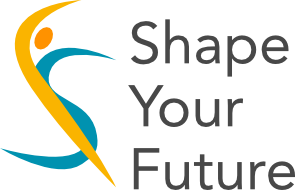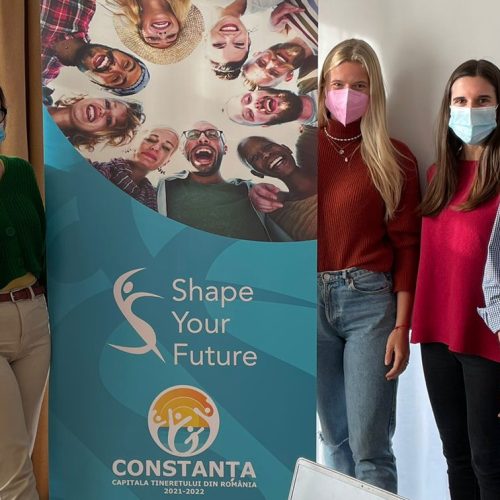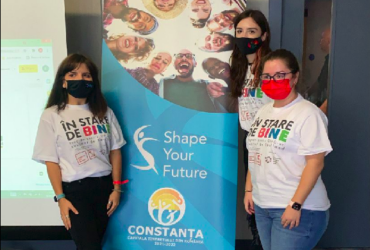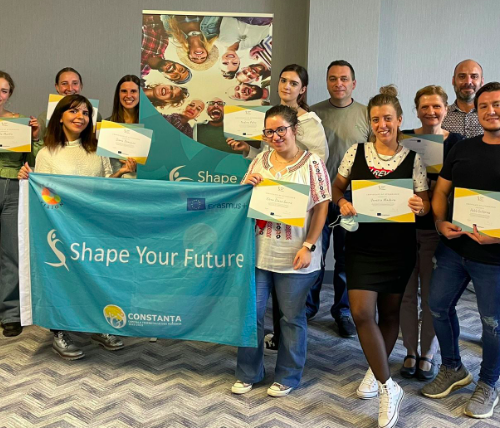Although the pandemic turned the development of Erasmus Plus projects, with European funding, most of the activities of NGOs, youth organizations, institutions, associations moving online, the Youth Vision Association, member of the implementation team of the Constanța – Youth Capital program in Romania (CCTR) carried out within the project “Shape Your Future” developed in partnership with associations and youth organizations from Spain, Ireland, Portugal, Poland and Romania, several online activities such as round tables, consultations, focus groups in which young people volunteers and representatives of youth associations and organizations were forced to answer questions about the pandemic activity, the problems encountered by NGOs during the pandemic, how the pandemic changed the activities of NGOs, what types of courses or materials would need those in NGOs to adapt their methods / activities to existing conditions, whether we are talking about environments online or offline, possible obstacles to the use of digital tools in the NGO’s work, what are the main advantages and disadvantages of these online tools, what strategies do you use to motivate young people and how have they worked online with young people.
At the roundtable, NGOs in Spain concluded that the pandemic has increased the importance of online activism and the digitization of political / social processes, created barriers for traditional civic activists working offline, stressed the role of digital tools as essential for civic participation. – allowed to discover new resources for the mobilization / promotion of the cause. In carrying out their activity, the organizations encountered problems with the Internet, lack of technology, difficulties in promoting the message to the public, lack of digital skills and tools. Non-governmental organizations have also established the advantages and disadvantages of online tools such as creating connections with partners from other countries, with internal partners and new initiatives and project ideas, and as disadvantages the lack of working tools or poor internet connection.
Regarding the strategies used to motivate young people, respondents said that the main strategy was to make them participants and protagonists of activities and reflections. When asked about the rating of working online with young people, the participants consider that the virtual work of young people was a new and positive experience, because young people brought a lot of digital knowledge to people who did not have online communication skills, especially the elderly.
The focus group conducted by Spain involved 8 young people aged between 20 and 25, and the answers related to the pandemic, the difficulties and problems encountered draw attention to the problems related to the internet connection and technical problems as something unpleasant when conducts online activities. The engagement and participation of young people in activities (educational / work) has increased due to the online format and the circumstances caused by the pandemic. Young people have encountered problems or barriers when it comes to accessing tools that allow them to participate in educational and / or work activities online. Young people may feel more comfortable participating online than face-to-face. There has been an increase in psychological problems among young people due to the circumstances arising from the pandemic (isolation, stress, anxiety). The computer skills of young people are insufficient. Difficulties in accessing quality IT tools have been identified due to poverty and lack of resources. Difficulties among young people in accessing the labor market due to the crisis caused by the pandemic. The most used platforms, both for personal activities and for educational / work activities, are e-mail, whiteboard, google meet and zoom.
At the same time, within the “Shape Your Future” project, which aims at the social inclusion of young people from disadvantaged backgrounds, integration into the labor market, facilitating access to educational and innovation programs and developing entrepreneurial skills, NGOs were forced to disseminate a questionnaire among young people, a questionnaire that included questions related to age, occupation, the need to improve or not some skills, training and education during the pandemic, support in identifying a job during the pandemic, we can conclude that the most many young respondents are between 20 and 25 years old (45%), over 60% are young, over 50% of them are in training or studying, over 60% of those interviewed expressed a desire to and improve digital and communication skills and abilities, as well as managerial and teleworking skills. Over 70% of respondents said that they did not receive any training to help them carry out their work or activity during the pandemic, and the rest were trained to use virtual communication platforms, but they would have liked receive training related to teleworking and digital skills. Most respondents said that they did not receive any help to keep or find another job during the Covid-19 crisis, and most put their digital and communication skills to good use and find a new job.
Taking into account their answers and needs, the “Shape Your Future” project will create and make available to young people in the target group, from the five partner countries, the necessary tools to enable them to develop their social, entrepreneurial and professional skills in the market. work.





